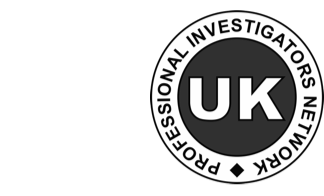As Private Investigators, we occasionally work on cases that we feel may impact our clients’ mental health. It might be that the stress of the case is leading to increased anxiety or feelings of depression. Sometimes we deal with clients whose initial suspicions may be exacerbated by paranoid thoughts, or whose behaviour is unpredictable. It is not uncommon for those struggling with intrusive thoughts or paranoid delusions to seek reassurance from investigation agencies. As a private investigation agency, mental health awareness is a priority for our industry. In this article, we discuss how we can further support our clients’ wellbeing.
Because the situations we investigate can be highly stressful, mental health awareness is key to safeguarding our clients. Some feel isolated, or that they have nobody to trust. These feelings can worsen existing conditions or lead to new struggles without proper support. When we talk about mental health, conditions range from stress, anxiety and depression to bipolar disorder, personality disorders and psychosis.

Private Investigation Agency: Mental Health
We have dealt with a spectrum of cases where mental health concerns are a factor. Some involve clients who are unable to trust their partners, refusing to accept when there is no evidence of infidelity. Extreme cases are those clients who are convinced they have been bugged, are being followed or monitored, but can’t give a clear reason why they believe this. In every case, the mental health and wellbeing of our clients is a priority.
Because of the often-personal nature of cases, many private investigators come across clients whose mental health is vulnerable or fragile. This article is written in conversation with our partner, the not-for-profit mental health organisation, BHSF, and their clinical director Tracey Paxton, who has over 30 years’ experience in mental health support. Our aim throughout this series is to highlight some options available to private investigation agencies and discuss how we can embed mental health awareness into different investigations.
Free Mental Health Support for All RevealPI Clients
As part of our aim to support our clients, RevealPI has partnered with BHSF. This partnership entitles all of our customers to a range of mental health services, both during and after an investigation. We are now able to signpost clients towards free, confidential mental health support. Without obliging anyone to take it up, this support ranges from telephone counselling to in-depth psychological assessments.
Looking Out for Client Mental Health
When a client’s suspicions are seemingly unfounded, or their explanation of the situation doesn’t add up, Private Investigators face a difficult decision.
Should they make a judgement that the client is wrong without investigating and simply refuse the case? Ethically speaking, is this the right thing to do? It’s important to consider the effects it may have on the client if their concerns are dismissed as unfounded without reason. We try to treat all our clients with care, even when there are unanswered questions.
How Investigations can Impact Clients’ Mental Health
Private investigation agencies should be aware of how certain mental health problems can impact our work, and vice-versa.
Matrimonial Investigations
Believing your partner is unfaithful can have a hugely adverse effect on your self-esteem and mental health. When clients bring matrimonial cases, investigators can look out for the signs of stress and depression which may arise.
In cases where evidence of unfaithfulness or dishonesty is found, the client may experience bereavement or grief over their relationship. The knock-on effects on life, such as separation, moving home and child custody arrangements can be extra stressors.

It may be a good idea to let clients know where to find mental health services and information, in case they want them later down the line. This can help the client recognise the impact these life events may have on their mental health.
Signposting is a method which makes no judgements or obligation to seek help. This can help avoid offering advice you are not qualified to give.
Online Dating Scams
When somebody asks us to verify the identity of someone they have fallen in love with online, it can be difficult for them to accept the person isn’t genuine. A client may believe they have fallen in love with a ‘wealthy foreign entrepreneur’ or a ‘soldier’, but investigators know the tell-tale signs of a scam. These include excuses to borrow money without meeting or unbelievable stories of why they can’t meet.
In these cases, we try to provide an answer or give as much information as we can about similar cases. If we are confident that they don’t have enough information to have a decent chance of finding the real person, then we tell them before beginning an investigation.
Finding out they’ve been duped can lead people to question their self-worth, particularly in online dating scams. Investigators who deal with these kinds of cases should be particularly on the lookout for signs of depression.

Bug Sweeping
People who believe they are being monitored or spied on aren’t always correct. Whilst many have evidence of information being leaked which could only have come from an eavesdropping device, this isn’t always the case. Some clients are certain they are being watched in their own home or their workplace, despite there being no evidence or tangible reason to believe this.
In these cases, refusing to visit the property may not be reassuring, and could even compound their belief. Instead, we make an assessment and help them understand the likelihood of us finding anything and the other possibilities that may have led to their suspicion.
What is an unfounded or paranoid belief?
According to mental health charity, Mind, justified suspicions are those which we can back up with evidence. For example, if lots of people have lost money buying from a particular company, it’s justified to be suspicious and choose not to buy from them.
However, if you aren’t sure whether someone’s suspicions are justified, consider these factors. Suspicious thoughts are more likely to be paranoid if:
- no one else shares the suspicious thought
- there’s no definite evidence for the suspicious thought
- there is evidence against the suspicious thought
- it’s unlikely the person would be singled out for what they suspect others of doing, e.g. if the suspicions are against someone they don’t know
- the suspicious thought persists despite reassurance from others
- the suspicions are based on feelings and ambiguous events
While paranoia is not a mental health diagnosis in itself, if someone believes these kinds of thoughts enough to approach a Private Investigator then it is likely they are suffering severely.
Next Steps – How can a Private Investigation Agency Support Clients’ Mental Health?
It is important to remember that there are many misunderstandings around mental health, and particularly around what it means to experience severe conditions. Despite the stigma around mental health, people who are struggling are not usually dangerous to others. By coming to a Private Investigator, clients are often taking action to find peace of mind, which is a positive step in any situation.

The unfounded beliefs which some people bring to us can be very worrying, and those struggling with paranoid thoughts can feel isolated and depressed. There may be huge repercussions of simply rejecting a case which seems unjustified. Investigators can support clients whose suspicions are ambiguous by treating them with sensitivity and trying to reassure them. Conducting an effective and proportionate investigation, even if you establish there is nothing to be concerned with, can provide a client with the reassurance they need to move forwards.
Investigating Unjustified Concerns – When to Draw a Line
It goes without saying that private investigators are not qualified as psychologists. Just as we can not give legal advice, we do not have the authority to diagnose anyone or tell them we think they are having deluded thoughts, no matter how sure we are. Similarly, there is nothing that gives investigators the right to say a client is ‘just paranoid’ when we haven’t provided evidence to that effect.
In every case, our initial conversations with a client will involve some routine questions and checks. For example, a prospective client will always be asked to:
- Provide a background on the situation
- Explain their motive for the investigation
- Explain how they intend to use the results
Where it is relevant, we ask clients to explain the history between them and the subject. For example, we may ask if there has ever been any police intervention between them, or whether there is now or has ever been a legal reason preventing them from contacting the subject.
Private Investigation Agency: Mental Health and Professional Responsibility
The investigations we carry out must be proportional to the clients’ objectives. As professionals, we want to ensure we take the least invasive approach available, and avoid escalating a situation unnecessarily.
To ensure our methods match the circumstances, we go over our initial conversations with clients in detail. This may mean asking questions about things of which they have only spoken briefly, or checking details again.
By returning to their story, we can establish the experiences on which the client is basing their suspicions and whether or not they are consistent in their explanation.
However unlikely a case may seem, rejecting a case without evidence probably will not give the person any security or peace of mind. It may be that we are the only people willing to listen to their concerns. Instead, a small and targeted investigation may provide the information they need to accept that there is a problem.
Addressing Mental Health Concerns
When working with a client whose mental health is suffering, we see it as part of our duty of care to speak to the client about what we see. It may be that we have seen signs of depression or anxiety, or that their case seems to rest on an idea rather than something concrete.
1. Express Concerns Up Front
Firstly, we should express our concerns delicately. This can be difficult as the stigma around mental health means many people are uncertain how to talk about it. It may help to use general terms such as ‘many people find they feel depressed in these situations’, rather than speaking directly. If the client is certain of something that is not yielding results, the lack of evidence could be enough to start a conversation about mistaken beliefs.
2. Avoid Arguing
If someone is unwilling to accept a lack of evidence for their concerns, arguing rationally might not help convince them. According to HelpGuide, this is particularly important if they have mistaken beliefs caused by paranoia. Arguing or dismissiveness may only reinforce the person’s feelings of isolation and could make them perceive you as an aggressor. Instead, an investigator might talk to them about the fears behind the claims, without validating the paranoid thinking, and try to offer reassurance.
3. Set Boundaries
It helps to let the client know you can’t keep searching for evidence indefinitely. As professionals, we can draw a line on a case-by-case basis.
Factors to weigh up may include risk to investigators, the cost to the business and impact on the client.
In some cases, an investigation which yields no evidence can give the client peace of mind and encourage them to seek help. Here, we might put a time limit on how long we will look for evidence. For example, we could continue for another few days and still find nothing, at which point we would close the investigation. This might allow a few days for the client to come to terms with finding no evidence and prepare for the investigation to end.
4. Signpost Mental Health Services
If you feel comfortable doing so, you might direct the client to someone who can help. If you are concerned for their wellbeing, you could recommend they speak to their GP or a mental health professional and have a list of websites or leaflets about paranoia and delusion that might help. RevealPI’s partnership with BHSF means we can give a soft referral to confidential mental health support, simply by passing on a phone number. This removes barriers to getting help, while leaving the client to make the decision for themselves.
Some good starting points include:
- Mind.org.uk – About paranoia – About Stress – About depression
- BHSF
- National Paranoia Network
- Samaritans – 116 123 (Freephone)
Reporting Unsafe Behaviour
If an investigator is worried about a client’s safety or well-being, they are within their rights to contact local social services and ask them to investigate the matter.
It is worth considering whether this violates any confidentiality agreements or alert subjects to the client’s use of a private investigation service.
Because of the legal relationship between agency and client, it might be best to report only those at serious risk of harm, either to themselves or others.
A Safe Pair of Hands – Treating Clients with Care
Reveal PI takes clients’ concerns seriously, as we understand our clients may be unable to trust those around them. This will always require sensitivity and understanding. When we see the signs that somebody is struggling, we make safeguarding the person’s wellbeing a priority. Because we know people’s motives are not always clear, we never take a case which may cause harm to the subject. We only take actions that are proportional to the need. We try to educate ourselves and our investigators on the conditions that impact our industry so that we can respond to situations appropriately.
Ever considered hiring a private investigation agency? Call Reveal PI Today at 0330 808 9344 or visit 11 St Paul’s Square, Birmingham, West Midlands B3 1RB.

 Surveillance
Surveillance Matrimonial Investigations
Matrimonial Investigations Bug Sweeping
Bug Sweeping GPS Vehicle Tracking
GPS Vehicle Tracking Lie Detector Test
Lie Detector Test Person Tracing
Person Tracing Employee Investigations
Employee Investigations Asset Tracing
Asset Tracing Fraud Investigations
Fraud Investigations Injury & Insurance Investigations
Injury & Insurance Investigations







